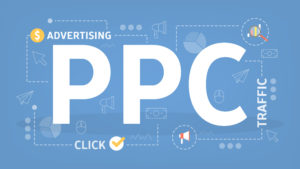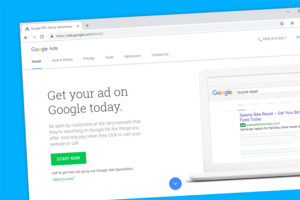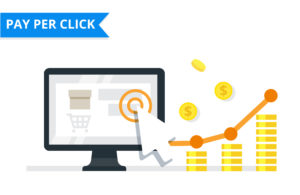
The Ultimate Guide to Pay-per-click (PPC) for Law Firms
One of the topics we get asked about most often is paid advertising. Some of the savviest digital marketers occasionally admit that Pay-per-click (PPC) is a subject that eludes them. Even if you don’t plan to become an expert, it’s important to know the basics of PPC for law firms. Here is a brief guide to help law firms get up to speed.
What is PPC?
Pay-per-click (PPC), also called paid advertising, is an advertising channel that allows users to pay to have their website on
PPC is a model that falls under search engine marketing (SEM). With PPC for law firms, you only pay when people interact with their ads resulting in an impression or click. A higher bid typically results in a better placement. When done correctly, PPC is a great way to generate leads. It can also result in powerful ROI if you build campaigns based on a seamless user journey.
Critical PPC Terminology
There’s a lot of jargon that goes along with PPC for law firms. Here are a few of the key terms marketers need to know:
Search engine marketing (SEM)
As mentioned above, this is a term that encompasses both paid and search engine optimization efforts.
CPC
Cost-per-click is the amount that an advertiser pays for every click on their ad. It is basically your bid in the auction that determines where your ad will be placed.
Ad rank
This is a value that determines the position of an ad on a search engine results page. The formula for this rank is the maximum bid x quality score.
Quality score
A search engine gives your ad a score based on your clickthrough rate (CTR) measured against the average CTR of ads in that position. It also takes into account the relevance of your keywords, the quality of your landing page, and your past performance on the SERP.
Maximum bid
This is the highest amount that a marketer is willing to pay per click on an ad.
Cost per mille (CPM)
Stands for cost per thousand, which is the cost per one thousand impressions.
Campaign
The first step in creating PPC for law firms is determining your campaign. This is the key message or theme you’re trying to convey with your advertising.
Ad group
This is a series of ads within your campaign based on a set of highly related keywords. You can create a CPC for every ad group that you develop.
Keywords
Every ad will target a set of relevant keywords and terms.
Ad text
This is the copy of your ad and should match the keywords you’re targeting.
Landing page
These are key pieces of paid advertising campaigns. It’s where users end up once they click on an ad.
Key Platforms for PPC for Law Firms
There are dozens of online spaces where marketers can advertise. Begin by looking at the potential ROI on each platform. Your best options are easy to use and highly trafficked. Additionally, teams with smaller budgets might consider lesser-known alternatives to the big search engines. Here is a breakdown of the different platforms for PPC for law firms.
Google Ads (previously called AdWords) 
Google is by far the largest search engine processing the most queries per second. That makes it the most competitive when it comes to paid advertising. Users should expect to part with a higher budget.
Bing Ads
Bing is another effective search engine though with less market share than Google. Marketers will have a slightly lower CPC at the expense of a larger audience.
Facebook Ads
Facebook has become an important channel in its own right. It offers specific targeting options such as demographics, location, and behaviors. Additionally, Facebook offers native ads which blend into a newsfeed and feel more organic to the user.
AdRoll
This is a retargeting platform that advertises to people who have previously visited your firm’s site. Google Ads also offers this option, but AdRoll can display ads on search engines as well as social media.
RevContent
This platform is slightly different in that it promotes content through PPC. It has the same impact as a guest post, where marketer content is displayed on an external site, except it’s in the form of an ad.
LinkedIn Ads
LinkedIn is the #1 professional networking platform, so law firms should consider using its advertising capabilities when trying to reach people based on their professional background. LinkedIn offers robust audience targeting capabilities so you can ensure you’re reaching the right people.
7 Important Benefits of PPC for Law Firms
If you haven’t experimented much with PPC, you may not be aware of the advantages you are missing out on. There are several compelling reasons to make PPC a key part of an integrated digital strategy.
- PPC ads are cost-effective. You have full control over what you’re willing to spend.
- PPC ads produce leads quickly. Unlike organic search efforts that take time to build, PPC ads can deliver results immediately, which is great for firms blending long and short-term goals.
- This form of advertising is easy to test and control. With PPC ads you can control the keywords you’re targeting, ad placement, or budget.
- Marketers can reach a warmer audience. With PPC ads you can target your ideal clients and take advantage of options like past online behavior or demographics.
- Search engine algorithms don’t affect PPC. Google is constantly evolving and can make a big impact on digital marketers. However, with PPC advertising, you won’t have to worry about these changes or their effect on marketers.
- PPC ads can help you rank organically. Keywords are increasingly competitive which makes it difficult for sites with low domain authority. With PPC, you can more quickly rank for keywords your audience is searching for despite domain ratings.
- Data from PPC advertising can inform other parts of your strategy. Paid advertising should complement your other digital efforts and analyzing data from PPC can provide key insights on keywords and user behavior.
5 Steps for Building a Paid Advertising Campaign
How can marketers craft high-quality campaigns? There are a few steps to complete if you want to succeed with PPC for law firms.
1. Set parameters
Create campaigns that relate to your larger objectives. Think about what you want to accomplish including who you want to target, the themes of your campaign, how you will measure success, etc.
2. Develop goals and metrics
Common PPC goals include brand awareness, lead generation, offer promotion, website traffic, etc. Determine which metrics you can measure to know if your goals are being achieved.
3. Select your campaign type
The form of advertising you’ll use will depend on where you can reach your audience. You can try one or a combination of campaign types. Options include search ads, display ads, social, and remarketing.
4. Perform keyword research
Every ad group you create must have a set of keywords to target. General wisdom is to select between one to five keywords per ad group. Make sure they are very relevant so that they don’t drag down your quality score.
5. Ensure analytics are set up
Google Analytics is generally the best tracking platform, and it’s free to set up. With these tools, you can gather information on PPC and other online activities.
Takeaway:
Whether your firm is well-established or just starting out, pay-per-click is a great way to generate leads and further your goals. PPC might be the thing that gives your firm an edge online! This article is a great place to begin exploring PPC for law firms. For a deeper dive, contact us in order to learn about our paid advertising services. We can help you create compelling campaigns that drives leads to the bottom of your sales funnel.
Are you ready to get started generating new, qualified leads?
Contact us to get started and let us help you energize your digital marketing and business development efforts.
Contact Us


